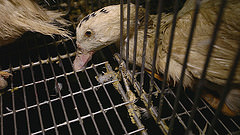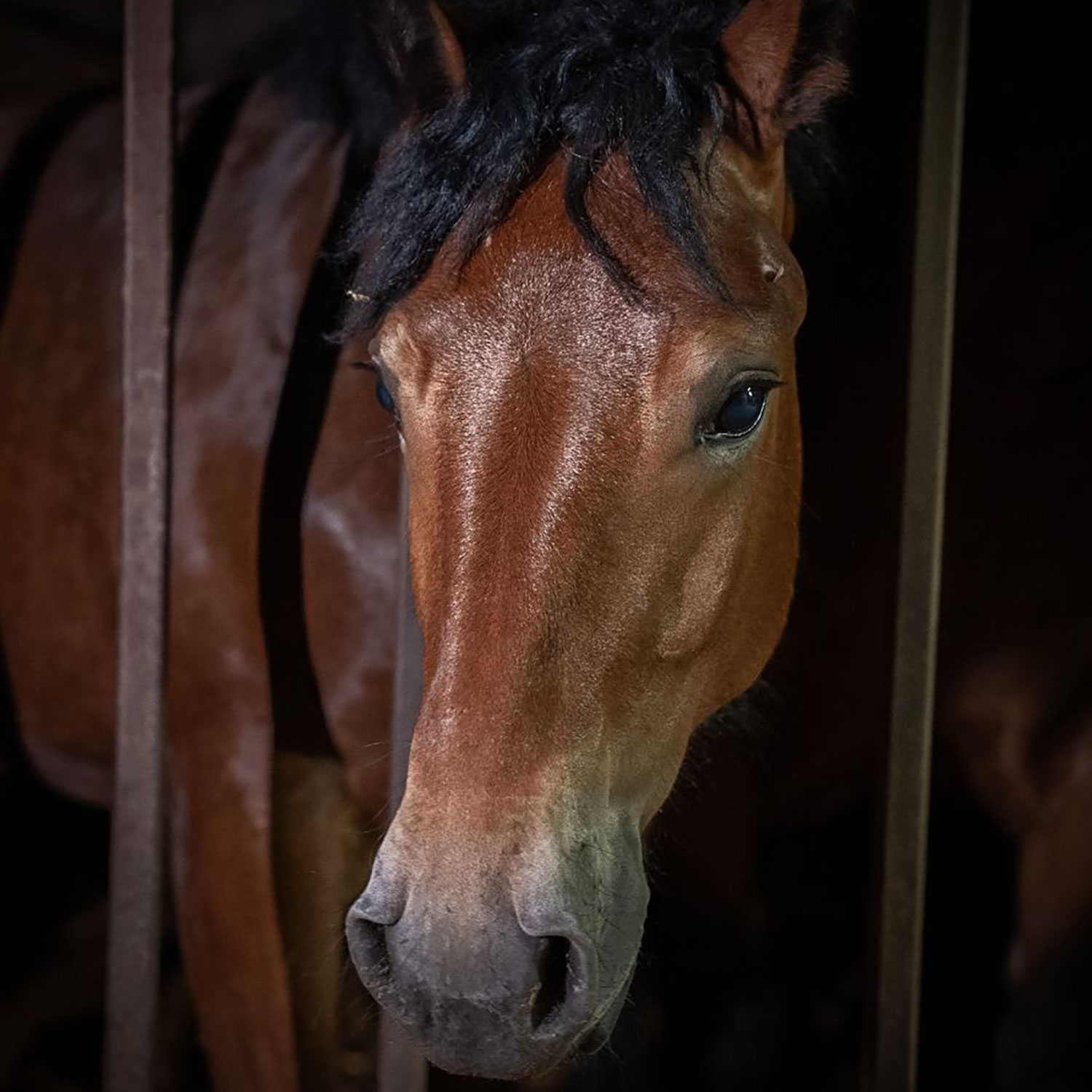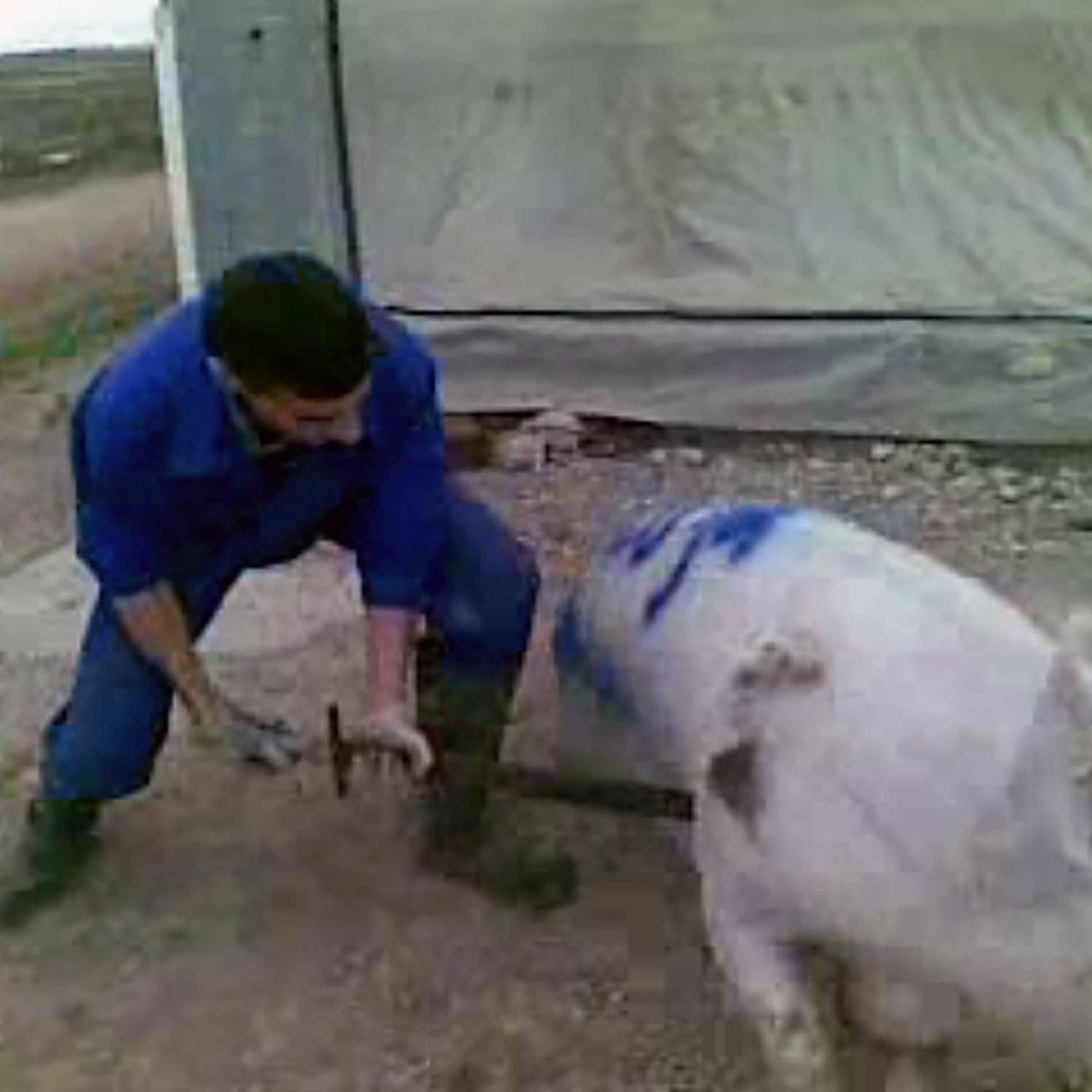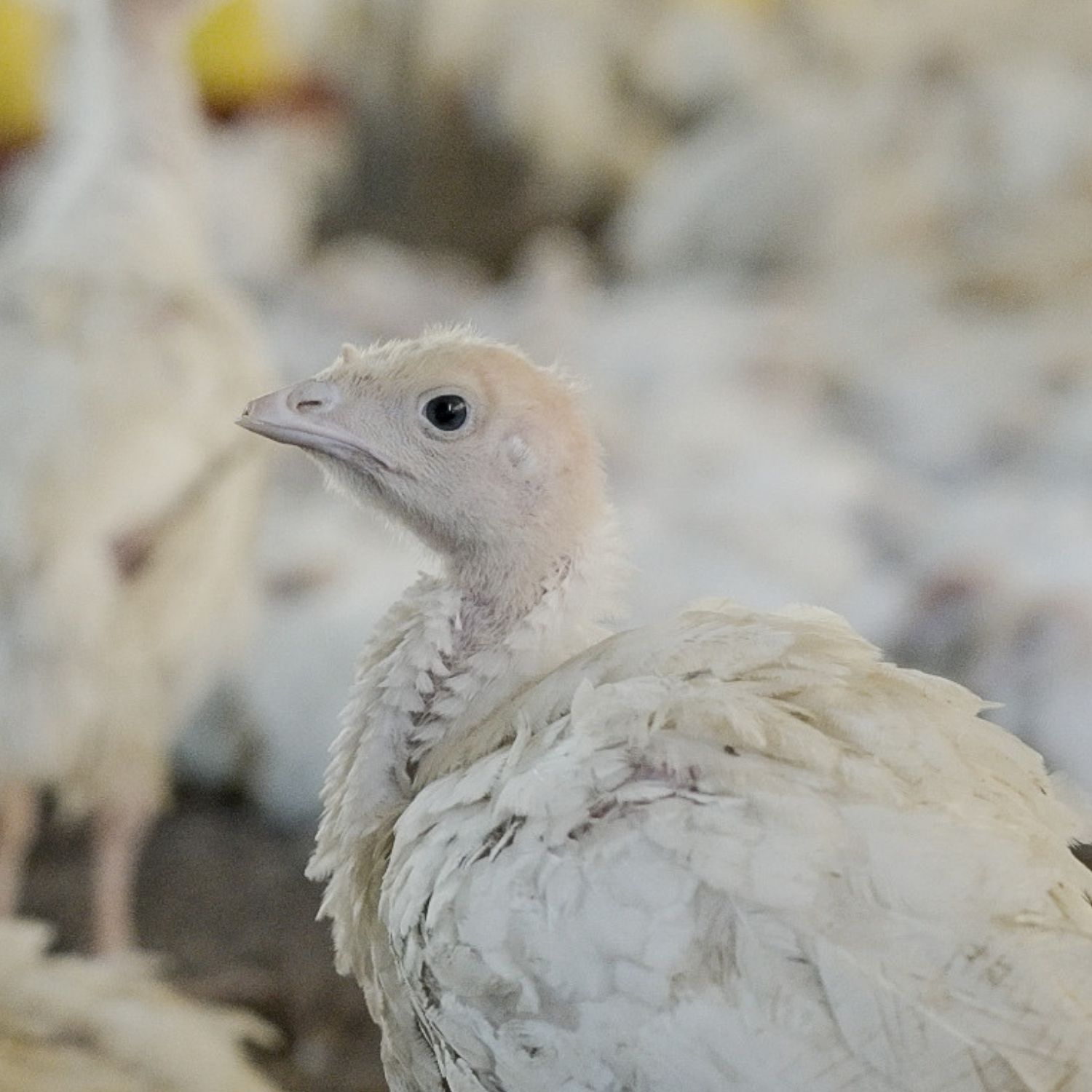Largest Foie Gras Producer in the World Linked to Images of Mistreatment

Today Animal Equality published the findings of an investigation into a French duck farm that supplies foie gras to Euralis, the largest producer in the world. Euralis owns brands ‘Rougie’ and ‘Montfort’ sold across Europe. Euralis also produces foie gras in Canada and sells this product throughout the U.S. under the brand ‘Rougie.’
The footage obtained inside the farm shows evidence of duck mistreatment and neglect:
- Injured animals agonizing without any veterinary treatment
- Birds force-fed with tubes shoved down their throats
- Dead animals due to the conditions of confinement
- Animals with obvious respiratory problems in a facility with inadequate ventilation
- Animals so sick that they are unable to stand
- Animals confined in cages so small they are unable to spread their wings
- Animals with clear signs of stress
Wading birds such as ducks and geese are routinely subjected to forced feeding to obtain a diseased fatty liver. In this process, a metal funnel filled with corn is regularly and painfully forced down the throat of the farmed birds. It is otherwise known as the ‘gavage process.’ As a result, the size of the liver of these animals rapidly increases – reaching up to 10 times the standard size and acquiring a yellow-colored, rounded, and pasty consistency.
“The pictures speak for themselves and show once again the inherent suffering in this industry. It is no coincidence that the production of foie gras is already banned in many countries. Force-feeding is a cruel practice. We will continue to work tirelessly to ban its production and encourage citizens to boycott these products.”
Laura Gough, spokesperson for Animal Equality.
Although French foie gras is not currently imported into the U.S. due to a USDA restriction, the Interprofessional Committee of Foie Gras Producers is seeking to have two of their slaughterhouses approved by the USDA. This would allow foie gras from farms like the one in this investigation to be sold in the U.S.
In California, a law enacted in 2004 that went into effect on July 1, 2012, prohibited force-feeding birds to enlarge their liver beyond normal size as well as the sale of products that result from this process. On January 7, 2015, U.S. District Judge Stephen V. Wilson outlawed the portion of California’s law banning the sale of foie gras within the state. Countries like Argentina, Austria, Denmark, Czech Republic, Finland, Israel, Turkey, Germany, Ireland, Italy, Luxembourg, Norway, Poland, Sweden, Switzerland, the Netherlands, and the United Kingdom have already banned the production of foie gras.
“The only acceptable recommendation that the Committee can do is to end the force-feeding of ducks and geese. And the best way to achieve this is by prohibiting the production, importation, distribution, and sale of foie gras.”
Dr. D. J. Alexander
Member of the European Scientific Committee of Animal Health and Animal Welfare
Animal Equality has carried out 7 undercover investigations into the foie gras industry. In 2014 the Indian government banned the importation of foie gras in response to a formal petition by Animal Equality. India became the first country in the world to ban the importation of this product.
- 1. 1. Rougie US website.
- 2. 2. Le foie gras français rêve de nouveau de «l'eldorado» américain. La Presse.
- 3. 3. Notification No 87 (RE–2013)/2009-2014. Department of Commerce. Ministry of Commerce & Industry. Government of India.




